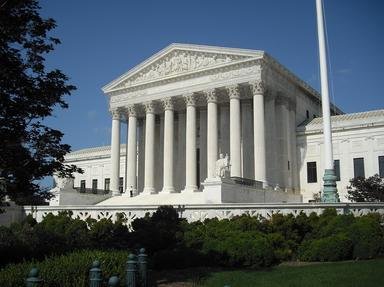Quiz Answer Key and Fun Facts
1. From which Ivy League university did John Roberts graduate from in 1976 with a Bachelor of Arts in history?
2. Beginning in 1980, John Roberts clerked for which Supreme Court Justice, whom he later replaced as Chief Justice in 2005?
3. After serving as Supreme Court clerk, Roberts later joined the law practice of Hogan & Hartson where he did pro bono work for a number of clients including acting for the plaintiffs in which Supreme Court case?
4. Why was John Roberts not confirmed to serve on the Court of Appeals for the District of Columbia after President George H.W. Bush nominated him in 1992?
5. John Roberts never argued a case before the Supreme Court.
6. What role did Roberts play in the 2000 case Bush v. Gore, which decided the 2000 Presidential Election for George Bush?
7. President George W. Bush nominated Roberts on July 19, 2005 to replace which justice who retired earlier that year?
8. Roberts was confirmed by a 78-22 vote in the Senate, losing only the votes of exactly half the Democrats because they were concerned about his vague position on which issue?
9. One of the first majority opinions Roberts wrote while on the Supreme Court was Gonzales v. O Centro Espirita Beneficente Uniao do Vegetal, in which the Court ruled unanimously that a religious group could be exempt from which law for religious purposes?
10. Although normally considered a conservative and rarely the swing vote, Roberts served as the swing vote and sided with the liberals in National Federation of Independent Business v. Sebelius, which upheld what?
Source: Author
Joepetz
This quiz was reviewed by FunTrivia editor
stedman before going online.
Any errors found in FunTrivia content are routinely corrected through our feedback system.

